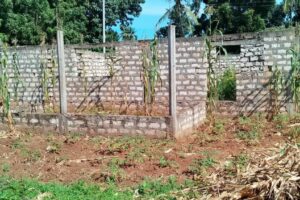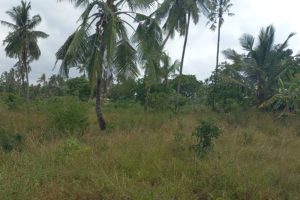Do you understand the concept of a house and that of housing? Did you know that there is a right to housing, and is embedded in the constitution of Kenya, which provides that every person has the right to accessible and adequate housing, and to reasonable standards of sanitation?
House
A house is a basic structure, unit or building for residential purposes normally containing habitat rooms, sanitary washing and cooking facilities. In its essence, a house is a dwelling place for human habitation. A house as a matter of facts provides shelter and acts as a focal point for day to day living. The physical characteristics of a house depend on climate, terrain, building materials, technology skills and other cultural determinants such as economic status of the house.

Housing
Housing on the other hand is a larger concept which include all other facilities and amenities which make a house livable. In its true essence therefore, housing goes beyond the physical structure including all the services and community facilities significant to human comfort.

Housing encompasses the total residential neighborhood in the environment including the physical structure, all necessary services, facilities and operators for total health of the individual. It is the totality of the house and environment of which is situated and those infrastructure facilities which make living in them convenient and safe.
Abram (1994), defined housing as not only a shelter but also part of the fabric of life and social milieu.
|
|
Housing is not only a basic human need but also constitutes a vital component of man’s welfare life sustenance and survival.
In the hierarchy of mans needs housing is ranked second to food and it has profound impact of lifestyle, health as well as the productivity of the individual.
Housing is both a social and economic issue. Under social aspect, housing is a source of identity and status in the society. It affords dignity, privacy and security. It provides protection from elements of nature and provides space for human activities for the advancement of quality of life. Where houses are located, how well designed and built and how well they meet environmental, social, cultural and economic fabric of the community are factors that influence the daily life of people, their health, security and wellbeing.
Economically, housing is an investment from every individual, family and country as a whole. It represents a major non-food household expenditure. At national level, housing investment represent GDP in most developing countries. It contributes both directly and indirectly to employment generation raising per capita income.
Housing plays an essential role in any strategy for human settlement. The availability of housing can affect the location of settlement within residential area. Therefore, housing is a planning tool to direct physical growth of cities in urban areas, and is equally an instrument for creating a better environment in urban and rural areas.
The convention approach to housing is set around the concept of house as a physical structure emphasis on three (3) aspects:
- Structure quality e.g. permanent, semi-permanent, temporary.
- Level of services provided e.g. water, electricity, market.
- Space available for dwellers.
Any house/structure occupied by households will satisfy a range of needs felt by its occupants. It does so by means of services it provides, and these include:
- Shelter which protect its occupants from elements of nature e.g. sunshine, rainfall.
- Location will determine whether occupants have access to employment opportunities and social facilities
- Onsite service e.g. water supply, electricity and sanitation should be met to improve the quality of life.
- Tenure is the right to a property. It refers to title or right by which property is held. It is important for physical and emotional as well as functional security of people. It has two dimensions i.e. negotiable and security of tenure.
- Space is the area available to all occupants, households, thus determining the type of activities can be undertaken.
Conclusion
Good housing therefore should meet building, housing and health codes, contain all essential services, must not be overcrowded, must also meet adequate space, adequate security, security of tenure, structural stability and reliability, adequate lighting, heating and ventilation, adequate water supply, suitable environmental quality and adequate and accessible location with regard to work and basic facilities all which should be available in affordable price. Therefore, housing is more than just a roof over one’s head.
Recommendation
Housing is a fundamental human need: The right to housing is embedded in the constitution of Kenya, which provides that every person has the right to accessible and adequate housing, and to reasonable standards of sanitation. Kenya’s growing economy translates into an expanding middle class, therefore increasing demand for housing.
Therefore, the following are recommended be given into consideration in order to improve the provision of housing adequately and in affordable price
Legislation
- Streamline national housing legislation
- Improve legal environment stimulating housing construction
- Modernize legislation regulating the rights and responsibilities related to common spaces in apartment blocks and enforce its implementation
- Consider development of legislation regulating cooperative housing sector and other forms of non-commercial housing
- Strengthen the role of municipalities in implementing the national housing policy
- Streamline and coordinate the development of legal framework for land management
- Improve legislation for mortgages
Strategy and Policy
- Develop a long-term sustainable housing strategy
- Develop national spatial policy framework
- Stimulate housing supply to relieve housing deficit and improve affordability
- Promote diverse non-profit housing providers to ensure alternative approaches to housing provision and a more competitive and balanced housing development market
- Support self-building in the single-family housing sector
- Support residential regeneration
- Expand range of affordable housing (types and tenures)
- Stimulate the development of housing construction finance
- Execute a balanced tariff reform for housing and utilities in order to set rational economic stimuli in the sector
- Improve the land administration and policies in land management
- Improve the real estate market infrastructure
- Support the development of a market-driven banking sector and microfinance institutions
- Encourage private investment in housing
- Increase and make consistent financial means for housing projects, both on the state and municipal levels
- Housing finance should be integrated into effective land management practices
Institutional Setting
- Strengthen coordination between the national executive bodies when implementing the national housing policy
- Ensure the integration of spatial planning in housing policies
- Accelerate and coordinate development of the national Cadastre database
- Improve spatial reference and mapping
- Gain the trust of investors to promote the development of a sustainable financial sector
- Institutionalize Credit Bureaus
- Encourage education and training for borrowers
Spatial Planning and Urban Development
- Strengthen the role of national regional planning to facilitate national development
- Ensure local planning documentation is prepared integrating the multi-level system of spatial planning
- Support an integrated development management approach to development proposals.
In case you find the article useful and would like to support me, you can buy me a coffee ☕
Land surveying | Valuation & Advisory | Property & Estate Agency | Physical & Land Use Planning | Environmental Management | Architecture & Landscaping
Contact: 0113209028
Email: georole20@gmail.com | info@georole.co.ke




